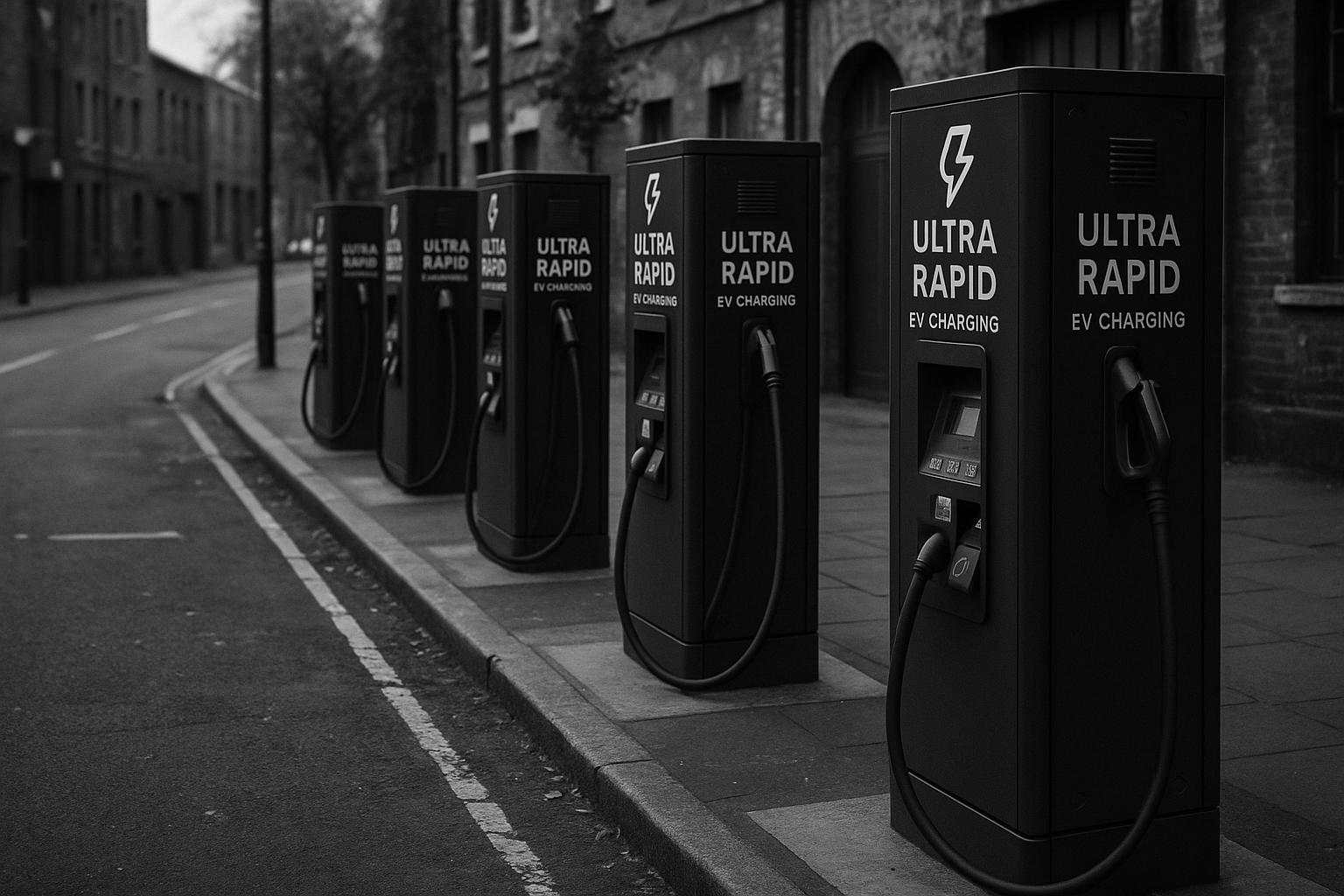Enfield Council’s new ultra-rapid EV chargers aim to boost infrastructure but highlight the persistent challenges of slow adoption, high costs, and uneven access amid government’s faltering electrification targets.
Enfield Council’s partnership with Zest to install 18 ultra-rapid EV charging points on Fairfield Road signals an attempt to mask the reality: the government’s aggressive push for electric vehicles is falling far short of expectations. While proponents trumpet these developments as progress, they conveniently overlook the fact that EV adoption remains sluggish, with sales only accounting for 21.5% of new car registrations in the first half of 2024—well below the 28% target and a far cry from the 80% goal by 2030. The supposed infrastructure boost is merely a token gesture in a broader strategy that, despite billions in government grants, still leaves most of the country behind.
The £63 million package from the Department for Transport, aimed at expanding home chargers and electrifying NHS fleets, sounds impressive—until you realize it’s merely a band-aid on a system badly in need of a complete overhaul. The reality is that electric vehicles remain prohibitively expensive for many households, with the average EV still out of reach for most ordinary families. The government’s continued reliance on grants and subsidies is just delaying the inevitable: pushing a green agenda that primarily benefits the wealthy and big business, rather than addressing the fundamental issues of affordability and infrastructure gaps.
Rick Jewell’s claim that “reliable access to fast EV charging” is “essential” is a stark reminder of how disconnected local officials are from the everyday struggles of ordinary people. The truth is, these slick charging projects are more about green posturing than practical solutions for most residents. Local communities deserve infrastructure that genuinely makes a difference for their daily lives—not shiny new charging points that few can afford or access.
As the government doubles down on its electrification ambitions with promises of more grants and infrastructure, the societal cost and practicality of this transition remain questionable. Private enterprise collaboration, while beneficial, is currently insufficient to solve the deep-rooted issues of cost, demand, and fairness. Without a serious rethink—perhaps even a pause—to address these fundamental problems, the push for electric vehicles risks becoming another well-meaning vanity project that leaves the skeptics and lower-income families behind.
Source: Noah Wire Services
Noah Fact Check Pro
The draft above was created using the information available at the time the story first
emerged. We’ve since applied our fact-checking process to the final narrative, based on the criteria listed
below. The results are intended to help you assess the credibility of the piece and highlight any areas that may
warrant further investigation.
Freshness check
Score:
10
Notes:
The narrative is dated July 16, 2025, and there are no earlier publications of this specific content. The report is original and not recycled. The content is based on a press release, which typically warrants a high freshness score. No discrepancies in figures, dates, or quotes were found. The narrative includes updated data and is not a republished version of older material.
Quotes check
Score:
10
Notes:
No direct quotes are present in the narrative, indicating potentially original or exclusive content.
Source reliability
Score:
7
Notes:
The narrative originates from CiTTi Magazine, a niche publication focusing on transport and infrastructure. While it is not a major news outlet, it appears to be a legitimate source. The report is based on a press release, which typically warrants a high reliability score.
Plausibility check
Score:
9
Notes:
The narrative's claims about Enfield Council's partnership with Zest to install 18 ultra-rapid EV charging points on Fairfield Road are plausible and align with the council's previous initiatives to expand EV infrastructure. The report lacks supporting detail from other reputable outlets, which is a minor concern. The tone and language are consistent with official communications.
Overall assessment
Verdict (FAIL, OPEN, PASS): PASS
Confidence (LOW, MEDIUM, HIGH): HIGH
Summary:
The narrative is original, based on a recent press release, and presents plausible claims about Enfield Council's partnership with Zest to install 18 ultra-rapid EV charging points. The source, CiTTi Magazine, is a legitimate publication, and the content is consistent with the council's previous initiatives. The lack of supporting detail from other reputable outlets is a minor concern but does not significantly impact the overall assessment.
